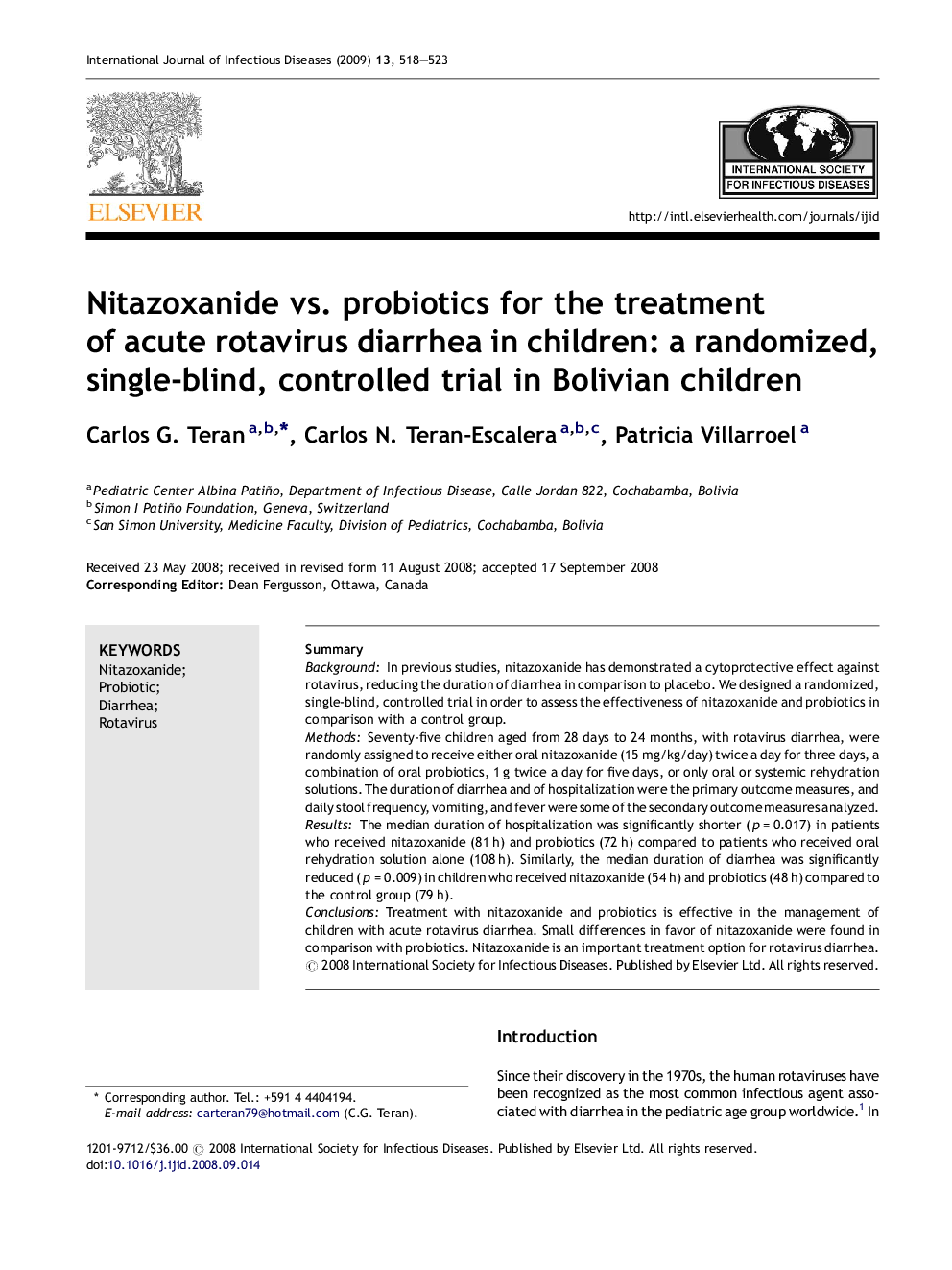| Article ID | Journal | Published Year | Pages | File Type |
|---|---|---|---|---|
| 3364693 | International Journal of Infectious Diseases | 2009 | 6 Pages |
SummaryBackgroundIn previous studies, nitazoxanide has demonstrated a cytoprotective effect against rotavirus, reducing the duration of diarrhea in comparison to placebo. We designed a randomized, single-blind, controlled trial in order to assess the effectiveness of nitazoxanide and probiotics in comparison with a control group.MethodsSeventy-five children aged from 28 days to 24 months, with rotavirus diarrhea, were randomly assigned to receive either oral nitazoxanide (15 mg/kg/day) twice a day for three days, a combination of oral probiotics, 1 g twice a day for five days, or only oral or systemic rehydration solutions. The duration of diarrhea and of hospitalization were the primary outcome measures, and daily stool frequency, vomiting, and fever were some of the secondary outcome measures analyzed.ResultsThe median duration of hospitalization was significantly shorter (p = 0.017) in patients who received nitazoxanide (81 h) and probiotics (72 h) compared to patients who received oral rehydration solution alone (108 h). Similarly, the median duration of diarrhea was significantly reduced (p = 0.009) in children who received nitazoxanide (54 h) and probiotics (48 h) compared to the control group (79 h).ConclusionsTreatment with nitazoxanide and probiotics is effective in the management of children with acute rotavirus diarrhea. Small differences in favor of nitazoxanide were found in comparison with probiotics. Nitazoxanide is an important treatment option for rotavirus diarrhea.
